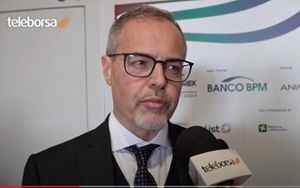(Finance) – “The rise in interest rates is certainly a positive factor from a cyclical point of view for the banking system which evidently has greater margins with rates tending to rise”. That’s what he said Daniele Caroni, CFO of Banca Iccrea, interviewed on the sidelines of the Assiom Forex congress.
“The behavior of the ECB – he continued Caroni – has been particularly aggressive in recent sessions: on Thursday, Governor Lagarde confirmed a rather strong stance in terms of restrictive monetary policy and even announced that she will raise it again by 50 basis points also in March, somewhat surprising the markets. Across the pond we have a Fed that has been highly bullish and aggressive over the last year and has now started to use a little softer language. It will, therefore, be interesting to see how much the ECB will continue to support monetary tightening. We know that there are about 8 trillion euros on the ECB’s balance sheet market, both in terms of deposits – especially the extraordinary TLTRO loans which are repaying, let’s say quickly in recent months – and in terms of the balance sheet made with the quantitative purchases of securities . All this still places the ECB in an expansive attitude, because it has effectively flooded the market with liquidity, and to be consistent with its more restrictive monetary policy, it requires it to recover this liquidity that it still has strongly in the market”.
“It is therefore presumable – explained the CFO of Banca Iccrea – that the ECB will continue to have a restrictive attitude, with rate hikes, probably futures today price in another 75 basis points of hikes and therefore it is likely that we will still see a measure of 50 basis points in March and perhaps another 25 points before the summer basis. Supporting this cycle of increases, from the point of view of the margin, is a fact that in itself, in terms of the income statement, is positive for the banks but the fallout on the economic effects can have undesirable side effects as obviously raising rates means mean cooling aggregate demand, the propensity to consume, and therefore slowing down the economic cycle. Which could also lead to an undesirable recession in Europe. The estimates of the offices and the main bodies see not exactly a recession but an economic slowdown, a growth that will probably be around 0.5% at a European level. I believe that in the coming months we will see particular attention from the central bank towards core inflation – the one excluding energy and food prices – to understand if obviously these monetary measures are cooling down demand and at which point we could also see a slowdown in this bullish policy from which the financial markets would benefit. At the moment, until core inflation changes its path, we should reasonably expect a still restrictive monetary policy from the ECB”.
